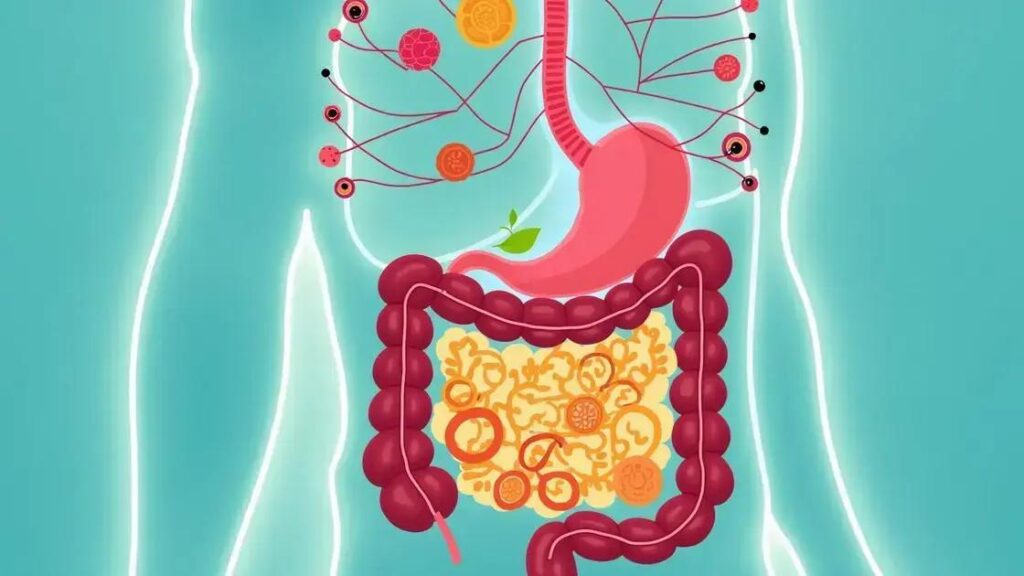The link between gut health and overall well-being is profound, with a balanced gut microbiome influencing mental clarity, mood, and emotional stability. By eating a nutritious diet, managing stress, and staying hydrated, individuals can significantly enhance both gut health and mental well-being.
The link between gut health and overall well-being is a fascinating area of research that highlights how our digestive system affects not just our physical health but also our mental state. Your gut is often referred to as your “second brain,” and understanding its intricacies can lead to extraordinary benefits for your overall well-being. This article will delve into what gut health means, explore the gut-brain connection, and provide practical tips for enhancing your gut health to improve your overall quality of life.
Understanding Gut Health
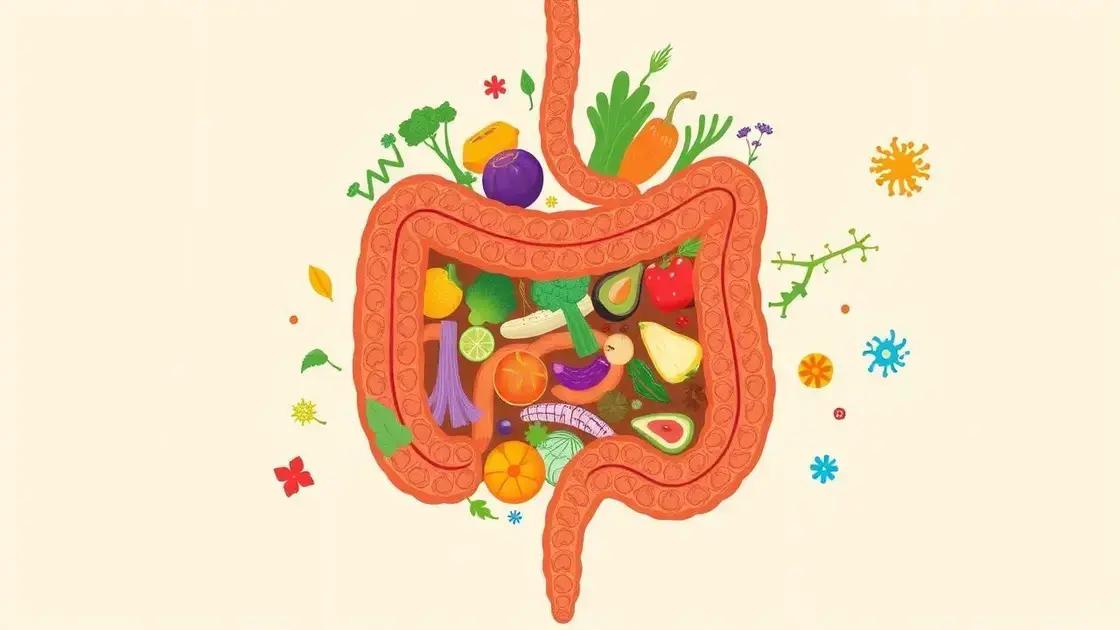
Gut health refers to the optimal functioning of the gastrointestinal tract, including the stomach and intestines. This system is crucial for digesting food, absorbing nutrients, and eliminating waste. A healthy gut maintains a balance of good and bad bacteria, which plays a significant role in our overall health.
What Influences Gut Health?
Many factors affect gut health, including diet, lifestyle, and genetics. Eating a diet rich in fruits, vegetables, whole grains, and probiotics can promote a healthy gut flora. On the other hand, processed foods, excessive sugar, and unhealthy fats can disrupt this balance.
The Microbiome’s Role
The gut microbiome consists of trillions of microorganisms that live in our intestines. These tiny organisms help break down food, produce essential vitamins, and protect against harmful bacteria. A diverse microbiome is often a sign of good gut health.
Signs of Poor Gut Health
Several symptoms may indicate poor gut health, such as bloating, gas, diarrhea, and constipation. Additionally, chronic issues can lead to more severe problems, like food intolerances and autoimmune diseases. Recognizing these signs is the first step toward improving gut health.
Dietary Changes for Better Gut Health
Making simple dietary changes can greatly enhance gut health. Incorporating fermented foods like yogurt, kimchi, and sauerkraut can introduce beneficial bacteria to the gut. Likewise, consuming fiber-rich foods can help foster healthy bacteria. Staying hydrated is also vital for maintaining good digestive health.
What is the Gut-Brain Connection?
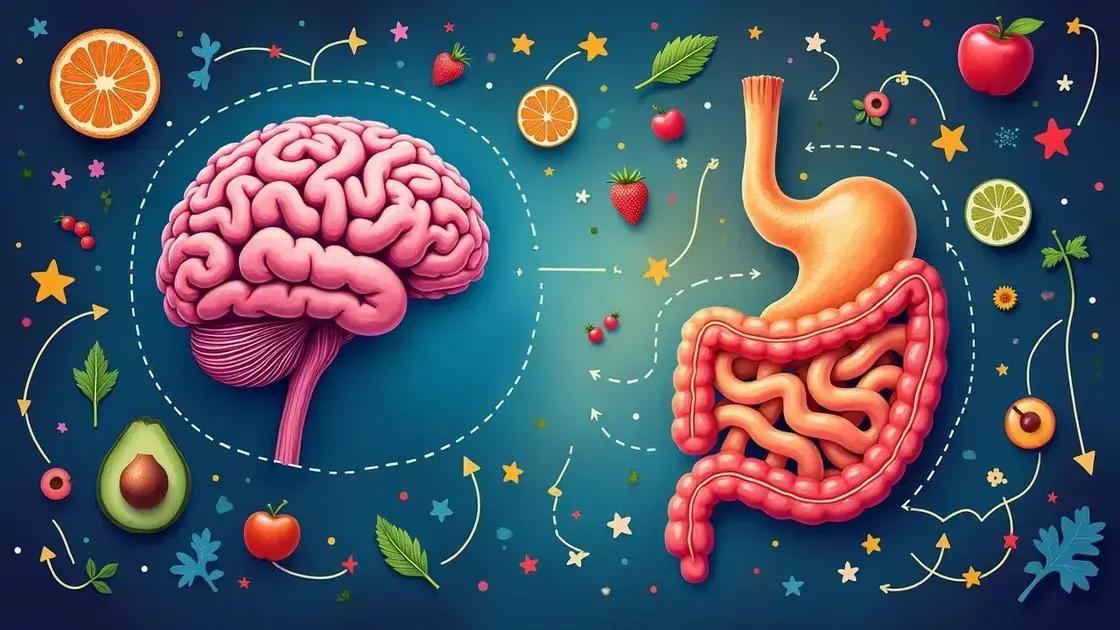
The gut-brain connection is a fascinating link between your digestive system and your brain. This connection shows how gut health can influence mental and emotional well-being. The brain communicates with the gut through a complex network that involves the nervous system and various hormones.
The Vagus Nerve’s Role
The vagus nerve is the primary pathway for this communication. It sends signals from the gut to the brain and vice versa, allowing the two systems to affect each other. For example, when you eat, signals from your gut can tell your brain whether you are full or still hungry.
How Gut Bacteria Influence Mood
Recent studies suggest that the bacteria in your gut can produce neurotransmitters that affect mood. For example, about 90% of serotonin, a key neurotransmitter responsible for feelings of happiness, is made in the gut. This illustrates how gut health can play a role in anxiety and depression.
The Impact of Stress on Gut Health
Stress can negatively impact both gut health and mental well-being. When stressed, the gut can experience disturbances, leading to symptoms like bloating and discomfort. Conversely, an unhealthy gut can increase feelings of anxiety and stress, creating a vicious cycle.
Diet’s Influence on the Gut-Brain Connection
Eating a balanced diet rich in fruits, vegetables, and fermented foods can promote a healthy gut microbiome. This, in turn, can support a healthier brain and improve mood and cognitive function. Understanding the gut-brain connection emphasizes the importance of nutrition for mental health.
Tips for Improving Gut Health
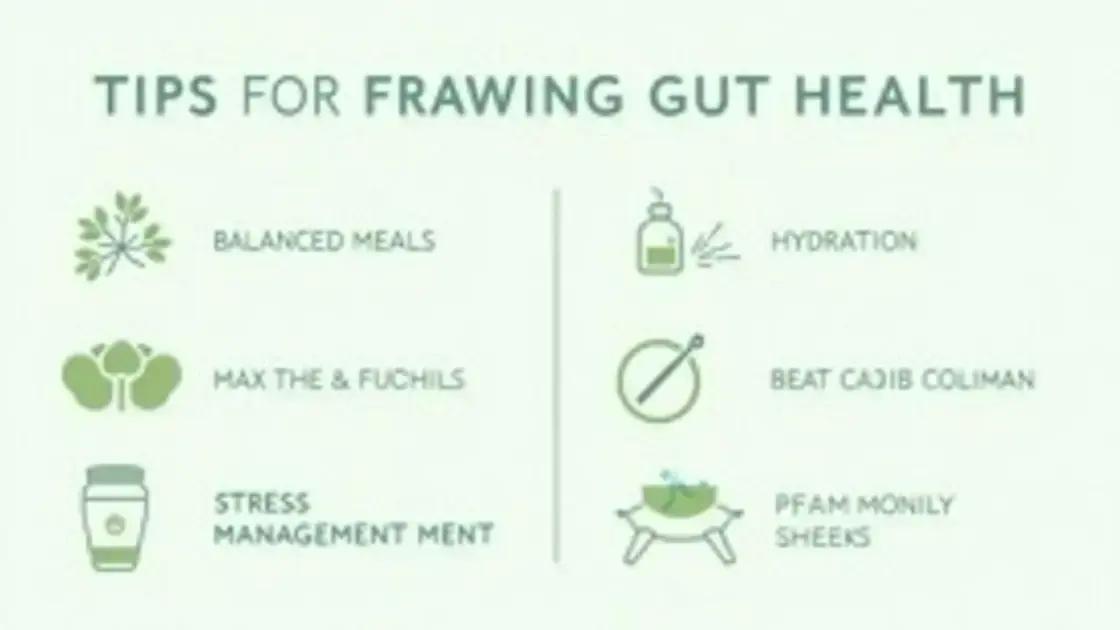
Improving gut health is essential for overall well-being. Here are some effective tips:
1. Eat a Balanced Diet
Focus on consuming a variety of foods, including fruits, vegetables, and whole grains. These foods provide fiber and nutrients vital for maintaining a healthy gut.
2. Include Probiotics
Probiotics are beneficial bacteria that help maintain gut health. Foods like yogurt, kimchi, and sauerkraut are excellent sources of probiotics that can strengthen your gut flora.
3. Stay Hydrated
Drinking plenty of water is essential for digestion and helps maintain the mucosal lining of the intestines. Aim for at least 8 glasses of water a day to support healthy gut function.
4. Limit Processed Foods
A diet high in processed foods can disturb gut bacteria. Minimize your intake of sugary snacks, fast food, and high-fat products to promote better gut health.
5. Manage Stress
Chronic stress can impact gut health. Engage in activities like meditation, yoga, or spending time in nature to help reduce stress and improve gut function.
6. Get Enough Sleep
Sleep is crucial for overall health, including gut health. Aim for 7-9 hours of uninterrupted sleep each night to allow your body to recover and maintain a healthy gut.
The Impact of Gut Health on Mental Well-Being
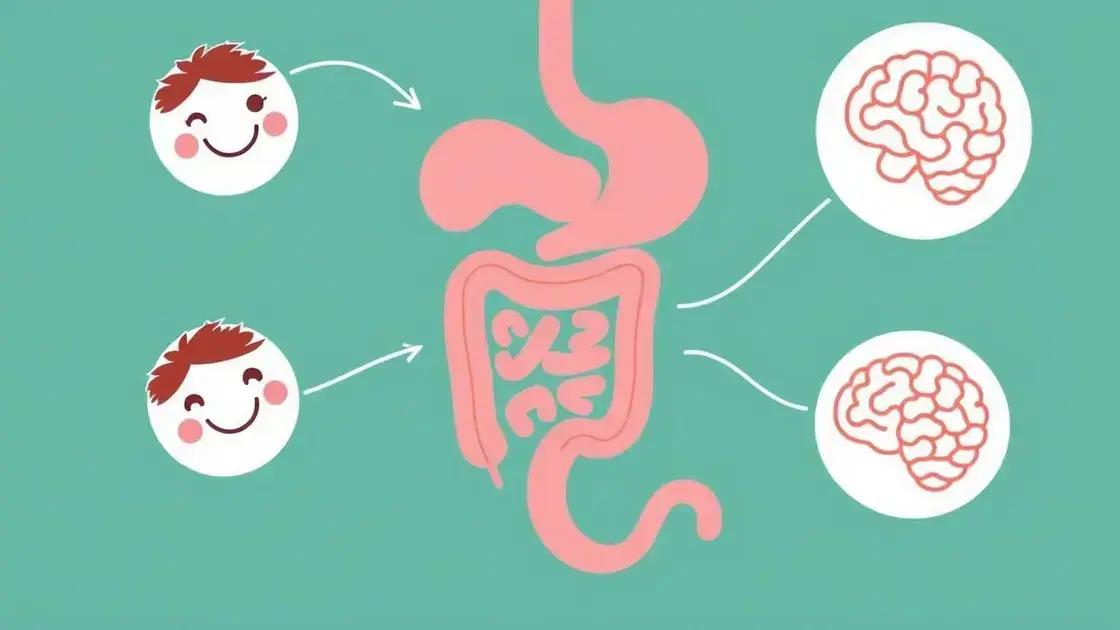
The impact of gut health on mental well-being is significant. A healthy gut can contribute to a happier and more stable mood. This is largely due to the gut-brain connection, where the gut communicates with the brain through various pathways.
The Role of Gut Microbiota
The gut microbiota consists of trillions of microorganisms that produce compounds affecting your brain’s health. These include neurotransmitters, which help regulate mood and emotional responses. For instance, serotonin is a neurotransmitter linked to feelings of happiness, and a large portion of it is produced in the gut.
How Digestive Health Affects Emotions
When the gut is not functioning properly, it can lead to digestive issues like bloating and discomfort, which may negatively affect mood. Conversely, a well-balanced gut can help reduce feelings of anxiety and depression.
Scientific Studies on Gut Health and Mental Well-Being
Recent research indicates that individuals with gut disorders tend to report higher levels of anxiety and depression. Healthy bacteria can help reduce stress hormones, making it evident that a balanced gut flora is crucial for good mental health.
Diet’s Influence on Mental Well-Being
A diet designed to improve gut health can also enhance mental well-being. Consuming foods rich in omega-3 fatty acids, antioxidants, and probiotics can boost both gut health and mood. Regular exercise and hydration also play significant roles in maintaining both gut health and mental clarity.
Understanding the Vital Connection Between Gut Health and Mental Well-Being
The relationship between gut health and overall well-being is undeniable. A balanced gut microbiome is crucial not just for digestive health but also for maintaining mental clarity and emotional stability.
By incorporating a nutritious diet, rich in probiotics and fiber, improving lifestyle habits, and managing stress, you can significantly improve both gut health and mental well-being. Enhanced gut health can lead to improved mood, reduced anxiety, and a happier life overall.
Recognizing the importance of the gut-brain connection highlights the need for a holistic approach to health, emphasizing the profound impact of what we eat and how we feel on our overall quality of life.
FAQ – Frequently Asked Questions about Gut Health and Mental Well-Being
How does gut health affect mental well-being?
Gut health plays a crucial role in mental well-being by producing neurotransmitters that influence mood and emotional stability.
What are some signs of poor gut health?
Signs of poor gut health include bloating, gas, constipation, diarrhea, and even increased anxiety or depression.
What foods can improve gut health?
Foods rich in fiber, probiotics, and omega-3 fatty acids, such as fruits, vegetables, yogurt, and fatty fish, can enhance gut health.
How can I manage stress to benefit my gut health?
Practicing relaxation techniques like yoga, meditation, and deep breathing can help reduce stress, which in turn benefits gut health.
Is there a connection between diet and mood?
Yes, a healthy diet can positively influence mood and mental clarity by supporting a balanced gut microbiome.
How can I know if my gut health is improving?
You may notice improvements in digestion, reduced bloating or discomfort, and a more stable mood as your gut health improves.

